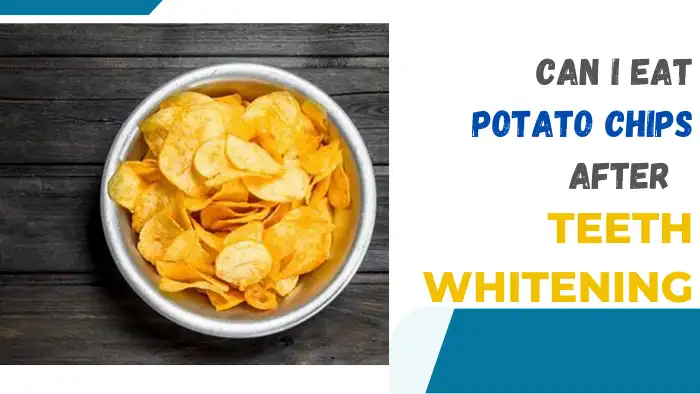After teeth whitening, it is best to avoid eating colored foods and drinks for the first 24-48 hours to prevent staining or discoloration of the newly whitened teeth.
This includes foods like berries, beets, tomato sauce, and soy sauce, and beverages like coffee, tea, red wine, and soda.
If you do consume colored foods or drinks after teeth whitening, the pigments in these foods and drinks can potentially stain your teeth, making your whitening treatment less effective.
What Foods to Avoid after Teeth Whitening?
After teeth whitening, it is essential to avoid certain foods that can stain your teeth. Here are some foods to avoid:
1. Colored Foods
Avoid any food that has a strong color, such as berries, beets, and carrots. These foods can stain your teeth and reduce the effectiveness of your teeth whitening treatment.
2. Acidic Foods
Acidic foods, such as citrus fruits, tomatoes, and vinegar, can damage the enamel of your teeth, making them more susceptible to stains. Avoid these foods for at least 48 hours after your teeth whitening treatment.
3. Dark Beverages

Dark beverages, such as coffee, tea, and red wine, can easily stain your teeth. Avoid these beverages for at least 48 hours after your treatment.
If you must drink them, use a straw to minimize contact with your teeth.
4. Sauces and Spices
Sauces and spices, such as soy sauce, curry, and turmeric, can also stain your teeth. Avoid these foods for at least 48 hours after your treatment.
5. Tobacco
Tobacco is a significant cause of tooth discoloration. Avoid smoking or using any tobacco products for at least 48 hours after your teeth whitening treatment.
It is essential to maintain good oral hygiene after your teeth whitening treatment. Brush your teeth twice a day and floss regularly to keep your teeth clean and healthy.
If you must eat any of the above foods, rinse your mouth with water immediately after eating to minimize the risk of staining.
Why You Should Avoid Colored Foods after Teeth Whitening?
After teeth whitening, it is important to avoid eating colored foods for a certain period of time to avoid staining the teeth and compromising the results of the treatment.
Foods and drinks that are high in pigmentation can cause staining of the teeth. These include coffee, tea, red wine, dark sodas, berries, and tomato sauce, among others.
The pigments in these foods and drinks can penetrate the pores of the enamel and cause discoloration.
In addition to pigmentation, acidic foods, and drinks can also damage the enamel and contribute to staining. Acidic foods and drinks include citrus fruits, vinegar, and soft drinks.
These foods and drinks can soften the enamel and make it more susceptible to staining.
It is recommended to avoid colored foods and drinks for at least 24 to 48 hours after teeth whitening.
During this time, the pores of the teeth are still open and vulnerable to staining.
To help maintain the results of teeth whitening, it is best to stick to a “white diet” for the first few days after the treatment.
This includes foods and drinks that are light in color and low in pigmentation, such as chicken, fish, rice, potatoes, cauliflower, bananas, and clear liquids like water and coconut water.
In summary, avoiding colored foods and drinks after teeth whitening is important to maintain the results of the treatment.
Consuming pigmented and acidic foods and drinks can cause staining and damage to the enamel, undoing the effects of the whitening treatment.
What Happens When You Eat Colored Foods after Teeth Whitening?
After undergoing teeth whitening treatment, it is important to avoid eating colored foods and drinks for a certain period of time, typically 24 to 48 hours.
When someone eats colored foods after teeth whitening, the pigments in the food can easily attach to the teeth’s enamel and cause discoloration.
These pigments can also penetrate the pores of the teeth, which can make it difficult to remove the stains.
This can lead to a dull and yellowish appearance of the teeth, even after undergoing a teeth whitening treatment.
Foods that are acidic, greasy, and/or colored can contribute to staining.
Some common foods to avoid after teeth whitening include:
- Coffee and tea
- Red wine
- Dark sodas
- Tomato sauce
- Soy sauce
- Chocolate
- Berries
- Curry
- Beets
It is recommended to stick to a “white diet” after teeth whitening, which includes foods that are low in pigments and do not stain the teeth.
Some examples of foods that are safe to eat after teeth whitening include:
- Bananas
- Yoghurt (white)
- Porridge (with milk)
- Chicken breast
- Whitefish
- Cauliflower
- Potatoes (without skin)
- White rice
In addition to avoiding colored foods, it is also important to maintain good oral hygiene practices after teeth whitening.
Brushing and flossing regularly can help prevent staining and maintain the results of the treatment.
Overall, it is important to be mindful of what you eat after teeth whitening to ensure the best results.
Cons:
- Colored food and drinks, such as red wine, coffee, and tea, can stain your teeth, potentially undoing the effects of the whitening treatment.
- Consuming such items too soon after the procedure may also cause sensitivity or discomfort to the teeth, which can be a temporary side effect of teeth whitening.
- To maintain the results of the whitening treatment, it is recommended to avoid or limit the consumption of staining substances for at least 48 hours after the procedure.
The Impact of Colored Foods and Drinks on Teeth Whitening Results
Consuming colored foods and drinks after teeth whitening can have a significant impact on the results of your treatment.
The pigments in these items can adhere to the surface of the teeth and potentially cause staining or discoloration.
Some common examples of colored foods and drinks include:
- Red wine
- Coffee
- Tea
- Berries
- Soy sauce
- Red sauce
How to Protect Your Teeth Whitening Results
- To protect the results of your teeth whitening treatment, it is important to be mindful of the foods and drinks you consume. Some tips to help you protect your results include:
- Avoid consuming colored foods and drinks for at least 48 hours after your teeth whitening treatment.
- Rinse your mouth with water after eating or drinking to help remove any pigment that may have adhered to the surface of your teeth.
- Brush your teeth gently after eating or drinking to help remove any pigment that may have adhered to the surface of your teeth.
- Use a straw when drinking colored beverages to help minimize contact with your teeth
The Risks and Side Effects of Teeth Whitening
While teeth whitening is a safe and effective cosmetic dental procedure, there are some risks and side effects that should be considered.
Some of the most common side effects of teeth whitening include:
- Sensitivity in the teeth
- Irritation of the gums
- Temporary pain or discomfort
The Significance of Talking with a Dental Expert
On the off chance that you are thinking about teeth brightening, it is vital to talk with a dental expert.
A dental professional can assess your oral health and help determine if teeth whitening is right for you.
They can also provide you with advice on how to protect your results and minimize the risk of side effects.
The Cost of Teeth Whitening
The cost of teeth whitening can vary depending on a number of factors, including the type of treatment, the location of the dentist, and the extent of the procedure.
On average, the cost of teeth whitening can range from $300 to $1,000.
Conclusion
After teeth whitening, it is advised to avoid eating colored food and drinks for a certain period of time, typically 24 to 48 hours, to avoid staining the teeth and compromising the results of the treatment.
Consuming dark-colored foods and drinks can penetrate the pores of the teeth and undo the effects of the whitening treatment.
It is best to stick to lighter-colored and bland foods until the recommended time has passed, and then gradually introduce colored foods back into the diet.
Frequently Asked Questions
Is it safe to eat colored food after teeth whitening?
Yes, it is generally safe to eat colored food after teeth whitening. However, it is recommended to avoid consuming darkly colored or highly pigmented foods and drinks, such as red wine, coffee, and blueberries, for at least 48 hours after the procedure.
Will colored food affect the results of teeth whitening?
Consuming colored food and drinks shortly after teeth whitening may cause the teeth to become stained again, reducing the effects of the whitening procedure.
To maintain the results, it is best to avoid or limit the consumption of highly pigmented foods and drinks.
How long should I avoid colored food after teeth whitening?
It is recommended to avoid darkly colored or highly pigmented foods and drinks for at least 48 hours after the teeth whitening procedure.
This gives the teeth enough time to fully recover and helps maintain the results of the whitening.
Can I brush my teeth after eating colored food?
Yes, you can brush your teeth after eating colored food. Brushing helps remove surface stains and maintain the overall health of your teeth.
However, it is best to wait at least 30 minutes after eating to brush, as brushing immediately after consuming acidic foods can weaken the enamel.
What should I do if my teeth become stained after eating colored food?
If your teeth become stained after eating colored food, you may need to touch up the whitening with a professional treatment or an at-home whitening kit.
Good oral hygiene practices, such as brushing and flossing regularly and limiting consumption of highly pigmented foods and drinks, can help prevent future staining.

A Blogger, Author and Researcher! Gohar Aalam is recognized as a full-time blogger for Health and Tech Niches. I’m a Fountainhead of Gethealthup.com, will provides high quality knowledge.









